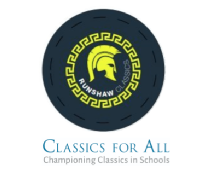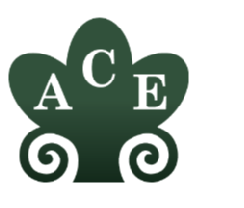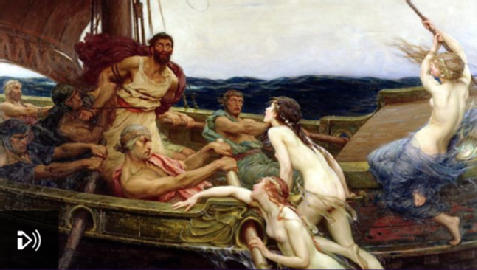Homer's Iliad/Odyssey
Recorded at our 2019 Class Civ Teachers Day, Dr David Fearn introduceds recent readings of Homer's Iliad and Odyssey, and uses these to orient us towards important and interesting new developments in Homeric thinking. Throughout the talk, Dr Fearn takes the opportunity to relate characterisation to the structure and purpose of epic form in a variety of ways. A handout can be downloaded here.
#AskAnAcademic: Dr David Fearn - Homeric Questions Part One: Homer
#AskAnAcademic: Dr David Fearn - Homeric Questions Part Two: Odysseus
OCR World of the Hero Resources
 Francesca Grilli from Runshaw College has created a host of amazing videos, including videos on every piece of art in the OCR Greek Art A-level syllabus which she has allowed us to use as part of the WCN/Classics for All resource collaboration. Each video focuses on one artwork from the syllabus and provides a detailed analysis of its background, importance and place within Greece's artistic tradition.
Francesca Grilli from Runshaw College has created a host of amazing videos, including videos on every piece of art in the OCR Greek Art A-level syllabus which she has allowed us to use as part of the WCN/Classics for All resource collaboration. Each video focuses on one artwork from the syllabus and provides a detailed analysis of its background, importance and place within Greece's artistic tradition.
Here Francesca is focusing on The World of the Hero, with videos on exam technique.Francesca is Course Leader for Classics at Runshaw College in Leyland. For more info about Runshaw Classics follow them on Twitter @RunshawClassics, Instagram, or subscribe to their Youtube Channel.
Exam advice
ACE Teaching Resources

Here at WCN we are proud of our association with ACE (Advocating Classics Education) and are pleased to be able to host their teaching resources here on the WCN site.
As part of their Classical Civilisation Teachers’ Summer School, held at King’s College London, ACE has prepared a series of introductory talks, delivered by leading academics and tailored specifically for the GCSE and AS/A-level Classical Civilisation syllabi.
The resources here are divided according to syllabus, but you can find the complete teacher resources from ACE and their Class Civ Teachers events via this link. You can find out more about the remarkable work of ACE on their dedicated website.
Other resources: Prof Edith Hall PowerPoint
Videos on the Odyssey/Iliad
The Trojan War
[Source: BBC Radio 4 - In Our Time]
Melvyn Bragg and his guests discuss the Trojan War, one of the best known events of Greek mythology. According to the traditional version of the story, the war began when a Trojan prince, Paris, eloped with the Spartan queen Helen. A Greek army besieged Troy for ten years before the city was finally overrun and destroyed. Some of the most familiar names of Greek mythology are associated with the war, including Achilles and Hector, Odysseus and Helen of Troy - and it has also given us the story of the Trojan Horse.The war is the backdrop for Homer's epic poem The Iliad, and features in many other works from classical antiquity. For centuries it was assumed to be a mythical event. But in the nineteenth century a series of archaeological discoveries provided startling evidence that Troy might really have existed, leading some scholars to conclude that there could even be some truth behind the myth. So does the Trojan War story have any basis in fact? And why has it proved such an enduring legend?With Edith HallProfessor of Classics at King's College LondonEllen AdamsLecturer in Classical Art and Archaeology at King's College LondonSusan SherrattLecturer in Archaeology at the University of SheffieldProducer: Thomas Morris.
The Iliad
[Source: BBC Radio 4 - In Our Time]
Melvyn Bragg and guests discuss the great epic poem attributed to Homer, telling the story of an intense episode in the Trojan War. It is framed by the wrath of the Greek hero Achilles, insulted by his leader Agamemnon and withdrawing from the battle that continued to rage, only returning when his close friend Patroclus is killed by the Trojan hero Hector. Achilles turns his anger from Agamemnon to Hector and the fated destruction of Troy comes ever closer. With Edith Hall, Professor of Classics at King's College London; Barbara Graziosi, Professor of Classics at Princeton University; and Paul Cartledge, A.G. Leventis Senior Research Fellow and Emeritus Professor of Greek Culture at Clare College, Cambridge.
The Odyssey
[Source: BBC Radio 4 - In Our Time]
Melvyn Bragg and guests discuss The Odyssey by Homer, often claimed as the great founding work of Western Literature. It's an epic that has entertained its audience for nearly three thousand years: It has shipwrecks, Cyclops, brave heroes and seductive sex goddesses. But it’s also got revenge, true love and existential angst. The story follows on from Homer's Iliad, and tells of the Greek hero Odysseus and his long attempt to get home to Ithaca after the Trojan War. Melvyn Bragg and guests discuss what has given the Odyssey such a fundamental position in the history of western ideas, what are the meanings behind the trials and tribulations that befall Odysseus and how the Odyssey was composed and by whom. With Simon Goldhill, Professor of Greek at King's College, Cambridge; Edith Hall, Leverhulme Professor of Greek Cultural History at Durham University; Oliver Taplin, Classics Scholar and Translator at Oxford University.
The Bronze Age Collapse
[Source: BBC Radio 4 - In Our Time]
Melvyn Bragg and guests discuss The Bronze Age Collapse, the name given by many historians to what appears to have been a sudden, uncontrolled destruction of dominant civilizations around 1200 BC in the Aegean, Eastern Mediterranean and Anatolia. Among other areas, there were great changes in Minoan Crete, Egypt, the Hittite Empire, Mycenaean Greece and Syria. The reasons for the changes, and the extent of those changes, are open to debate and include droughts, rebellions, the breakdown of trade as copper became less desirable, earthquakes, invasions, volcanoes and the mysterious Sea Peoples.
Article: Economic collapse: The real message of the fall of Troy
[Source: BBC News]
Interesting article on the fall of the Bronze Age Mycenaean world





